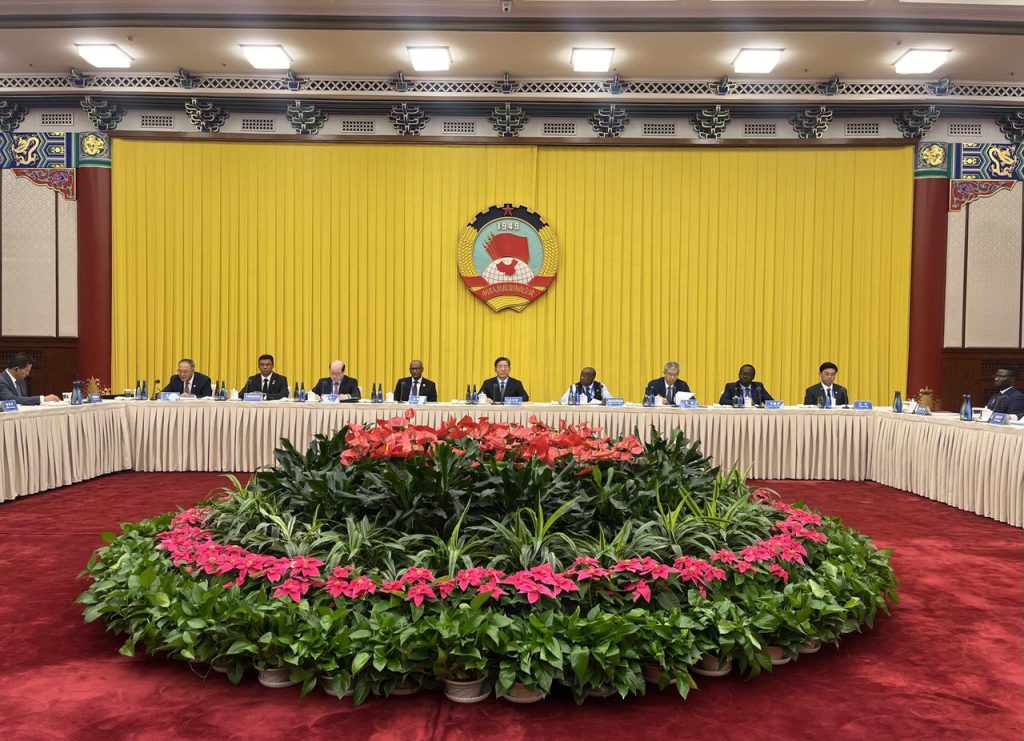THE CHINESE PEOPLE’S POLITICAL CONSULTATIVE CONFERENCE AND NEW HORIZONS OF KAZAKHSTAN-CHINA PARTNERSHIP

On September 29, 2024, the PKU Dongfang Scholarship delegation made an important visit to the Chinese People’s Political Consultative Conference (CPPCC) in Beijing, one of the key political institutions in China. The CPPCC is a unique platform for consultations on major state policy issues. It includes representatives from various political parties, social organizations, scholars, and cultural figures, which ensures broad discussions and consideration of different societal perspectives. The CPPCC plays a critical role in uniting the efforts of the Party and society to achieve common goals, contributing to China’s sustainable development.
This visit provided participants in the Dongfang program, which promotes academic exchange between scholars from more than 50 countries, a unique opportunity to familiarize themselves with the workings of one of China’s most important political institutions. The CPPCC plays a crucial role in ensuring political stability and the country’s development. Among the key speakers was Gulnar Shaimergenova, Director of the China Studies Center in Kazakhstan. In her speech, she emphasized the importance of academic and cultural exchanges and focused on China’s achievements under the leadership of the Communist Party of China (CPC).
China has become the second-largest economy in the world and a major center for innovation and high-tech industries. According to Gulnar Shaimergenova, the CPC has successfully overcome the challenges of the times, implementing large-scale reforms that have lifted approximately 800 million people out of poverty and created the world’s largest middle class.
Shaimergenova noted that the CPC, which emerged in difficult historical conditions, not only preserved its ideological foundations but also adapted Marxism to China’s unique conditions, blending elements of capitalism with traditional Chinese culture. In her speech, she stressed that the CPC’s success lies in its ability to adapt to global changes, enabling China to implement effective reforms and ensure sustainable development.
She also highlighted that the CPC continues to follow the strategic goals set by Deng Xiaoping and continues to reach new heights under the leadership of President Xi Jinping. One of these goals, the complete eradication of poverty, was fully achieved in 2020.
Shaimergenova emphasized the importance of the Belt and Road Initiative (BRI), first announced in Kazakhstan by President Xi Jinping in 2013. This initiative is not only part of China’s development strategy but also fosters economic, infrastructure, and cultural cooperation between countries in the region. The BRI has already been incorporated into the CPC’s Charter and continues to play a central role in China’s national development strategy.
Kazakhstan-China Cooperation Kazakhstan and China continue to strengthen bilateral relations based on the eternal comprehensive strategic partnership established in 2019. Cooperation under the BRI has played a crucial role in enhancing ties between the two countries. In her speech, Shaimergenova emphasized the importance of the Khorgos transportation hub on the China-Kazakhstan border, which has significantly reduced the time for goods to travel between Asia and Europe. She also highlighted the increase in trade between the two countries, which reached a record $41 billion in 2023.
It was particularly noted that regular high-level meetings between the Presidents of Kazakhstan and China contribute to the development of cooperation in areas such as technology, education, and sustainable development.
In conclusion, Gulnar Shaimergenova emphasized that Kazakhstan-China cooperation serves as a model of international partnership based on mutual trust and strategic vision. She expressed confidence that relations between the two countries will continue to evolve for the benefit of the entire region, creating new opportunities for growth and prosperity.
China Studies Center, Astana
